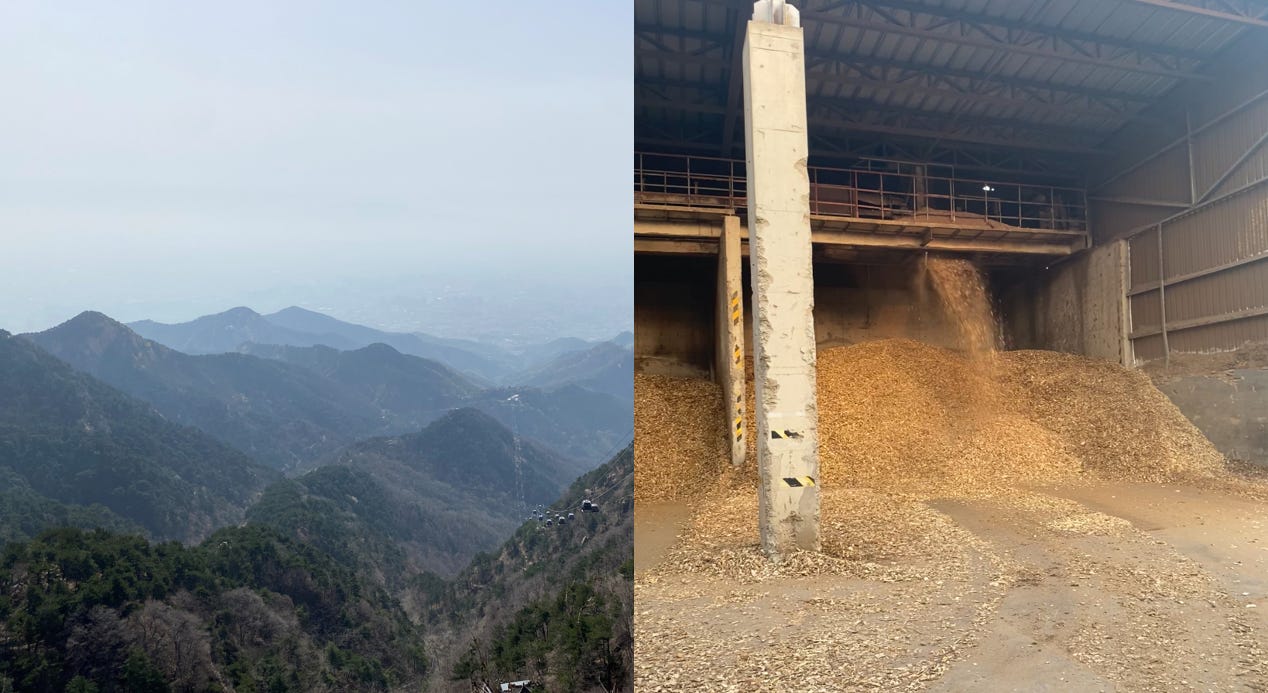Shandong Trip Report – Finding value amid sawdust and subsidies
From baijiu diplomacy to boardroom arbitrage, and finding a potential outperformer in China’s bloated wood panel board industry
As with most visitors to China’s rustbelt, Altraman’s trip to Shandong wasn’t for the scenery, but rather to broker a deal between a foreign waste-to-adhesive venture and one of China’s largest particleboard producers. What followed was less about spreadsheets and more about ceremonial baijiu shots with municipal officials, navigating the unwritten rules of China’s industrial diplomacy.
In the process – unearthing an interesting investment thesis buried beneath the rubble of China’s overbuilt wood panel sector. While most players struggle amid overcapacity and razor-thin margins, one vertically integrated manufacturer is quietly ticking along despite industry headwinds, thanks to tightening environmental standards, rural distribution dominance, and enviable financial discipline. In a market where survival often hinges on political favor and access to subsidies, this Company is innovating with potential to emerge as a rare winner in China’s industrial reshuffle.

Private markets, public crossovers, and the art of squeezing blood from stones
As some readers may know, my (Altraman) job revolves around private markets, or in industry parlance “Merchant Banking”. This sounds glamorous until you’re grinding through mid-market deals in today’s risk-averse climate. Asian SMBs and early-stage ventures are still reeling from COVID and are in need of repositioning, restructuring, capital, and yes, sometimes rescuing. The irony? This should be prime time for problem-solvers. The discounts are there for the patient and bullish on a turnaround story. Bringing investors around to this view can be tricky – liquidity is hoarded, risk appetites are anorexic, and the "wait-and-see" brigade has never been more populous. The gap between theoretical opportunity and executable reality has never felt wider.
In these testy waters, businesses need alternatives to attracting capital. Value-added services, such as establishing strategic relationships, business development, and local market insight can reduce friction around capital raising. Hence, when opportunity to do just this in China’s northeastern rustbelt beckoned, I jumped at the opportunity.
Merchant banker's homecoming? Maotai, particleboards and China’s green industrial machine
The trip to Shandong was my first extensive sojourn to the Mainland since COVID (excluding short hops across to Guangdong province). My last China trip before the pandemic was as an equity analyst chasing the dairy and infant formula gold rush, when China's consumption story still sparkled with infinite potential.
This time, I arrived as a strategic advisor to a small foreign tech venture hawking an improbable alchemy: transforming plastic waste into industrial adhesives for wood panels. The assignment was straightforward – ink an MoU with one of Shandong's particle board giants. The execution, as always in China, was anything but.
What followed was a masterclass in the three currencies that actually grease China's industrial wheels:
Political capital,
Baijiu tolerance, and
An eye for subsidies.
Days blurred together in a whirlwind of municipal government and business meetings where the agenda always seemed secondary to the ceremonial Maotai shots. Between toasts with cadres who could drink me under the table before breakfast, I glimpsed the machinery behind China's version of industrial policy.
While the Party leadership in Beijing changes every five years (in theory), the real action for dealmakers happens at provincial and municipal levels, where rotations follow a less synchronized rhythm. Newly appointed local government officials typically operate on 3-5-year tenures, but with a critical nuance – their "achievement clock" starts ticking the moment they arrive, and every new leader is on the lookout for showcase projects.

